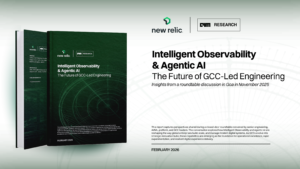The integration of AI has a transformative effect on every business vertical, whether corporate or industrial, healthcare or aeronautics, or day-to-day or prime. AI-powered applications simplify processes, support data-driven decision-making, and enable establishments to engage with customers more profoundly.
Business and technology leaders aiming to accelerate software development can expect substantial time savings with generative AI. However, they’ll need more than tooling to exploit the full potential of this disruptive technology.
For corporations, AI has evolved into a core engine of execution, helping to eliminate conventional barriers that have hampered expansion and growth for centuries. Artificial intelligence-driven app development enables businesses to grow operations effectively, offer options for scope (such as improved product and customer service diversity), and continually learn from and improve upon processes and products. But this AI-driven app development demands a complete overhaul of the company’s operational architecture. Many of the conventional critical path stages in businesses established around the ubiquitous flow of data will be managed by digital technologies and software instead of by people. The increasing use of AI technology raises additional concerns about the evolving responsibilities of employees and executives.
Unleashing Time Savings with Generative AI
Generative AI stands as a revolutionary force in the realm of software development, offering the alluring prospect of time savings. The current wave of AI-based tools empowers developers to execute tasks at a pace multiple times faster than traditional methods, signaling a profound shift in efficiency dynamics. However, this acceleration in productivity represents just the surface-level impact of generative AI. The crux of the matter lies in the realization that the mere adoption of these tools is insufficient to fully unlock the transformative potential embedded in generative AI. Beyond the sheer speed boost, developers need to explore how businesses can strategically leverage generative AI for sustained innovation, delving into the nuances of implementation and the broader implications for software development.
AI as the Core Engine of Execution for Corporations
In the modern corporate landscape, AI has transcended its conventional role as a mere tool, evolving into a central engine of execution. This paradigm shift holds immense promise, enabling businesses to overcome long-standing barriers and foster effective expansion and growth. AI-driven app development plays a pivotal role in this transformative journey, enhancing operational efficiency, diversifying product and customer service offerings, and fostering continuous learning and improvement. However, the journey from tool adoption to becoming an AI-driven organization demands more than a surface-level integration of technologies. It necessitates a comprehensive reevaluation of the operational architecture of businesses. Corporations will have to delve into the intricacies of this structural shift, examining how it impacts roles and responsibilities within organizations and what business leaders need to consider for a seamless transition.
Rethinking Operational Architecture in the Age of AI
The shift towards AI-driven app development signifies a fundamental restructuring of the operational architecture within businesses. Traditional critical path stages, once heavily reliant on human-managed data flows, are now increasingly entrusted to digital technologies and software. This significant and massive shift prompts a reevaluation of roles and responsibilities for both teams and executives alike.
In order to fulfill the demands of this changing technological landscape, there is a corresponding necessity for an expanded skill set as positions change. Furthermore, firms’ responses to this paradigm shift necessitate strategic considerations that are essential for effective navigation. These factors encompass more than just implementing technology; they also include organizational strategy and adaptability in general.
Developers need to explore the evolving dynamics of the workplace, considering the challenges and opportunities that arise from this transformation. The insight will address the concerns surrounding employee roles, the evolving skill set required, and the strategic considerations businesses must undertake to navigate this paradigm shift successfully.
As we explore various applications, the real-world implementation of AI becomes evident in every digital and virtual aspect we can think of. Understanding these diverse applications provides insight into the expansive role of artificial intelligence in shaping our daily lives and industries.
Leveraging AI concepts, developers are encouraged to responsibly utilize AI’s potential to ensure that AI’s continued journey in app development is characterized by ongoing innovation and a commitment to improving user experiences for people all over the world.
The integration of AI in app development has unleashed innovation, yielding personalized and intelligent applications. As AI evolves, it promises exciting advancements, urging developers, businesses, and stakeholders to responsibly harness its potential. A foundation in AI principles ensures a positive societal impact, shaping a smarter and more efficient future. Moving forward, the journey of AI in app development will be marked by continual innovation, dedicated to building applications that enhance global user experiences.
This article is written by a member of the AIM Leaders Council. AIM Leaders Council is an invitation-only forum of senior executives in the Data Science and Analytics industry. To check if you are eligible for a membership, please fill out the form here.





